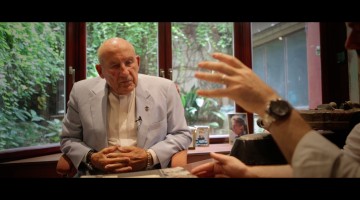We’ve already heard that to pull regional motorsport from the doldrums requires a youthful local hero or two. But there’s more to stimulating racing in the Middle East than that, according to those behind the Gulf’s race facilities. There needs to be cash, government involvement, and a media willing to spread the word. On top of that, there needs to be a secure grass roots scene to bring drivers up through the ranks.
[Not a valid template]“The best way to source funding and thus develop motorsport is by attracting government interest,” general manager of the Dubai Autodrome Richard Birch explains. “The trend globally is for governments to fund development programmes for drivers from grass-roots through to Formula 1. Examples of include Telmex for Mexican drivers, PDVSA in Venezuela, and most recently a consortium of Russia has started a similar programme. This funding exists right from the junior karting series’ through to the upper echelons of the sport.”
Crucial support need not necessarily be financial. Motorsport is littered with cruel examples of cash flowing like water but bad management decisions and/or ineffective strategy inevitably leaving teams and series alike with the rug very firmly pulled from under them (we all remember the expenditure Toyota pumped into their F1 campaign for half a dozen podium finishes). And yet while too much can sometimes be as dangerous as too little, the same cannot be said of media support.
“Send reporters to cover races and interview youngsters,” explains Richard. “There must be a collective effort to promote the sport at all levels in this region. At the Dubai Autodrome, we try our best with what we have in terms of resources and staff, but of course we need help rather than fence-sitting and pointing fingers.
“And it makes a difference. At the 24 Hours of Dubai, we had 180-plus media representatives in 2013, 160-plus in 2012 and always more than 120 media reps since its inception. Frankly not many more attend the Nurburgring 24 Hours, or even the Spa 24 Hours for that matter. Ironically, very few local working media attend those events. They prefer to receive press reports and photos from the service we provide.”
Regular promotion from outside base camp stirs public interest, but even this can backfire. A disinterested public means fewer media outlets choose to pile resources into motor racing, meaning race promotion slows, outsider interest loses its momentum, and the public becomes even more disinterested. It’s a vicious circle. As both CEO of Gulfsport Racing (and Formula Gulf 1000 promoter) Barry Hope and FIA Institute Young Driver Excellence Academy Mohamed Al Mutawaa – who, by the by, makes his World Rally Championship debut this weekend with Citroen on Rally Deutschland – previously discussed, backing young Emirati drivers is a good way to promote regional motorsport activities, providing – as discussed in our earlier feature – they can get the seats. And it’s not just drivers either. Region-wide competition is another way to go.
“Regional and national championships tend to work hand-in-hand,” a representative of the Bahrain International Circuit explains, “mostly because the top talents from each country would relish an opportunity to showcase their supremacy over their competitors on both a national scale and a wider horizon too. Healthy competition is one of the innate aspects of motorsport, and knowing that they’re up against the best that a country has to offer will often lead participants to dig deep and find that extra something that pushes them to put their absolute best. As a result, the quality of competition is elevated, which makes viewing even more enjoyable for fans.”
“Yes, this is an interesting concept,” Richard continues. “It’s been tried with the Bahrain V8 Series, and also to a certain extent GP2 Asia and the Speedcar Series. The Radical Winter Cup goes regional this next season and that will be interesting to monitor.
“The problem is though that no series has enjoyed sustained longevity. As long as there is a way to cover costs for transport, hosting and promotion of these races, then of course it has big benefits. But at this stage most of the GCC countries with motorsport on the agenda are developing and establishing their own programmes. Until these are sustained and well supported it is unlikely a GCC wide venture will succeed. You need to develop the drivers, because at the moment there are not that many licensed race drivers in the region.”



